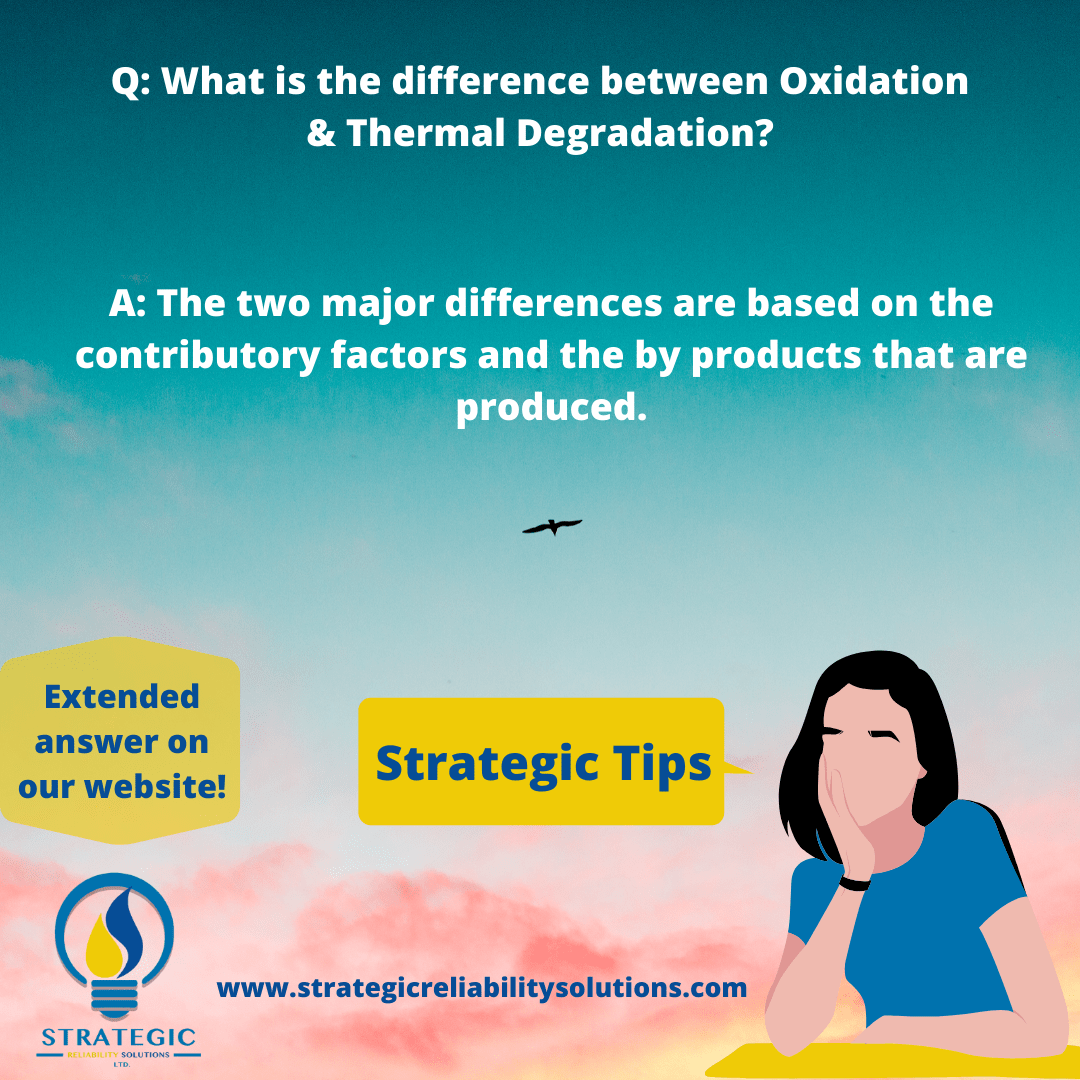What’s the difference between Thermal Degradation and Oxidation of a lubricant?

The two major differences are the contributory factors and the by products that are produced.
For oxidation, both oxygen and temperature are critical to the degradation of the lubricant however, in thermal degradation, the temperature of the lubricant exceeds its thermal stability (usually in excess of 200°C).
Oxidation usually occurs through the release of free radicals which deplete the antioxidants however, Thermal Degradation consists of polymerization of the lubricant.
Oxidation produces aldehydes, ketones, hydroperoxides, carboxylic acids varnish and sludge. On the other hand, Thermal Degradation produces coke as the final deposit.



